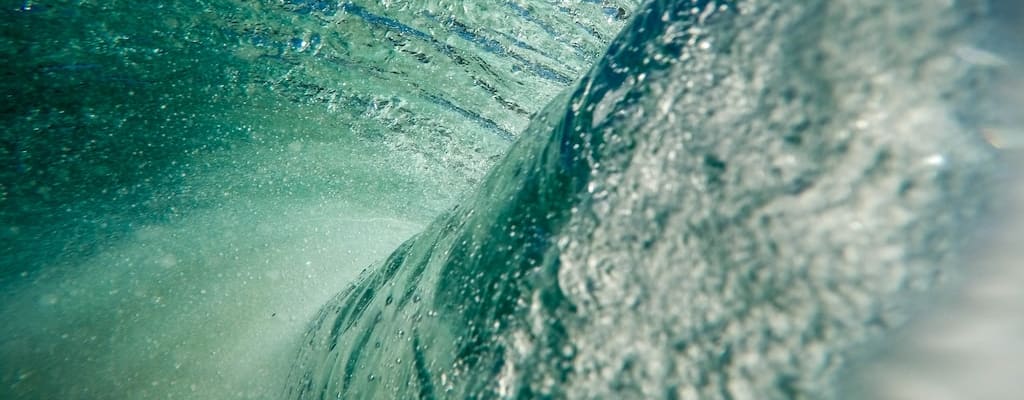shallow end: Idiom Meaning and Origin
What does ‘shallow end’ mean?
The idiom "shallow end" refers to a situation or position where someone lacks depth or expertise in a particular area. It suggests that the person is only able to understand or engage with the surface-level aspects of a topic or situation.

Idiom Explorer
The idiom "the half of it" means that something is incomplete or lacking important information. It suggests that there is more to a situation than what is currently known or stated.
The idiom "the half of it" is commonly used in American English and has a figurative meaning. Here are the facts about this idiom:
1. The idiom "the half of it" is derived from the phrase "you don't know the half of it."
The idiom "the end of one's rope" means to reach the limits of one's patience, stamina, or resources, with no more options or solutions available.
The idiom "that's your lot" means that something has come to an end or there is nothing more to be expected or offered. It can be used to express that there is no more of something or that there is no further opportunity or possibility.
The idiom "that's all she wrote" means that something is finished or ended, often with a negative or disappointing outcome. It suggests that there is nothing else to be said or done about a situation.
An idiom used to emphasize the extreme or exceptional quality of someone or something.
The idiom "that ever walked on two legs" is a colloquial expression used in American English. This idiom emphasizes the exceptional qualities or characteristics of someone or something. It is often used in a hyperbolic manner to convey a sense of awe, admiration, or astonishment.
The idiom "take the shadow for the substance" means mistaking something that is less important or valuable for the real thing. It implies a failure to recognize or distinguish between the genuine and the superficial.
The idiom "take lightly" means to not take something seriously or to underestimate its importance or impact.
The idiom "take a dive" means to intentionally lose or underperform in a competition or situation, usually for personal gain or to deceive others.
The idiom "take a dim view of" means to disapprove or have a negative opinion of something or someone.
The idiom "take a dim view of" indicates disapproval or a negative opinion of something or someone. It is commonly used in formal and informal contexts to express a strong negative sentiment.
FAIL
The idiomatic expression "shallow end" is commonly used in the English language to describe a situation or position that lacks depth or complexity. It has become ingrained in everyday language, particularly in the United States.
The phrase "shallow end" comes from the literal meaning of the term. In a swimming pool, the shallow end is the area where the water is not deep, designed for individuals who may not feel comfortable swimming in deeper water. This concept of a less profound area gradually extended to other contexts, gaining a figurative meaning.
When used figuratively, the idiom "shallow end" is often employed to describe a basic or simplistic level of understanding or engagement. It suggests that someone is only scratching the surface of a topic or not fully delving into its complexities. For example, if someone says, "I only know the basics of that subject, just the shallow end," they are emphasizing their limited knowledge or interest in exploring the topic further.
The idiom can also be used to describe a position or role that lacks depth or importance. In this sense, someone in the shallow end may be seen as having a superficial involvement or a less significant role compared to others. This usage is often found in professional settings, where the idiom conveys a sense of being at the periphery or not fully engaged in the core aspects of a task or project.
Overall, the use of the idiom "shallow end" effectively utilizes metaphors to convey meaning beyond the literal interpretation of words. Its widespread usage in various contexts reflects its usefulness in capturing the idea of lacking depth and complexity.
Another idiom related to the concept of "shallow end" is "deep end." While "shallow end" refers to a basic or simplistic level of understanding, "deep end" represents the opposite. It symbolizes delving into something with full force or taking on a challenging task without hesitation. If someone says, "I was thrown in at the deep end," they are describing a situation where they were put into a difficult position without much preparation or guidance.
"scratch the surface" is another idiom related to the shallow end. It means to only explore or understand the superficial aspects of a topic or situation. When someone says, "I've only scratched the surface of that subject," they are indicating that they have only gained a basic understanding and have not yet delved into the deeper layers or complexities.
"small change" is another idiom that can be related to the shallow end. It refers to something that is of little consequence or significance. It can be used to describe a trivial amount of money or someone who is not considered important or influential. For example, if someone says, "He's just small change in the grand scheme of things," they are suggesting that the person has little impact or influence.
The idiom "shallow end" is commonly used in the English language to describe a situation or position that lacks depth or complexity. Its metaphorical usage captures the idea of scratching the surface, lacking importance, or having limited engagement. Other related idioms include "deep end," "scratch the surface," and "small change," which represent exploring deeper aspects, understanding only the superficial, or having little consequence respectively. These idioms showcase the flexibility and richness of the English language in conveying meaning beyond literal interpretations.
Example usage
Examples of how the idiom "shallow end" can be used in a sentence:
- She preferred to stay in the shallow end of the pool because she couldn't swim well.
- In the meeting, the CEO mentioned that they needed to address some of the shallow end issues before tackling the more complex ones.
- When starting a new hobby, it's often recommended to begin in the shallow end to gradually build skills and confidence.
More "Location" idioms

